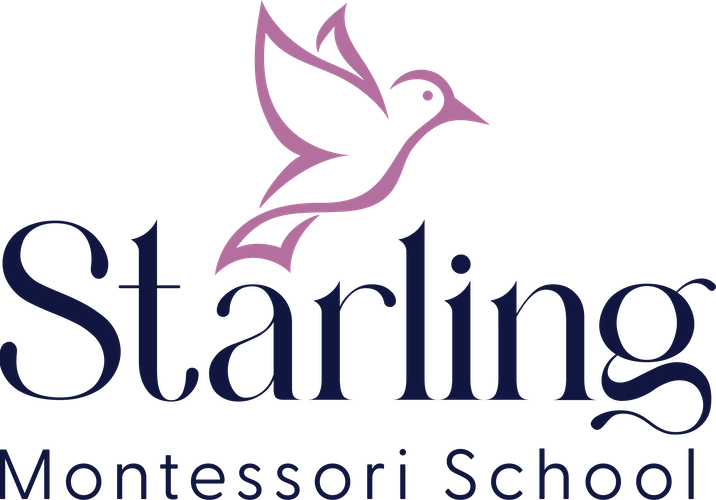Montessori Education
Any child who is self-sufficient, who can tie his shoes, dress, or undress himself, reflects in his joy and a sense of achievement the image of human dignity, which is derived from a sense of independence
It is the child's way of learning. This is the path He follows. He learns everything without knowing he is learning it... treading always in the paths of joy and love
These little human beings, who cannot speak on their own behalf, are nonetheless saying to us ' we have a right to a word of our own'... the child must be able to live in an environment built for him, an environment that answers his needs.
Montessori: A Brief History
Montessori education philosophy traces its origins to the pioneering work of Dr. Maria Montessori, an Italian physician and educator, in the early 20th century. Dr. Montessori's observations and experiments with children led her to develop an innovative educational approach centered on the belief that each child possesses an innate drive to learn and explore their environment.
In 1907, Montessori opened her first Casa dei Bambini, or "Children's House," in a impoverished area of Rome. Here, she implemented her groundbreaking philosophy, emphasizing the creation of carefully prepared environments that fostered independence, self-directed learning, and respect for the child's individuality. Montessori classrooms were characterized by a diverse array of hands-on materials designed to engage the senses and promote exploration and discovery.
Montessori's philosophy was revolutionary for its time, challenging traditional educational methods that relied on rote memorization and teacher-led instruction. Instead, Montessori believed in allowing children to learn at their own pace, following their interests and passions while cultivating essential skills such as critical thinking, problem-solving, and self-regulation.
Today, Montessori schools can be found in nearly every corner of the globe, serving children from diverse cultural, socioeconomic, and linguistic backgrounds The importance of Montessori education lies in its holistic approach to childhood development. By emphasizing the interconnectedness of the mind, body, and spirit, Montessori education fosters the development of the whole child – intellectually, emotionally, socially, and physically. Through hands-on learning experiences and an emphasis on practical life skills, Montessori education empowers children to become independent, confident, and lifelong learners, equipped with the skills and mindset necessary to navigate an ever-changing world.
Montessori Respects the child
Maria Montessori saw the child as a unique being, worthy of respect. She recognized that children are not just “small adults,” who need to learn how to live in an adult world, but rather, the hope and future of mankind. Montessori acknowledged that each child has his or her own natural path of development and her educational method strives to support and nurture this growth.
Respect for the child is shown in a multitude of ways including the care and craft devoted to the prepared environment and in the craft of how we engage with children. The child’s individual interests, pace of learning, and autonomy is respected and encouraged.
Montessori Supports Concentration
One of the key freedoms we offer young children is time! In a world were children often have to work, move, and process, at an adults’ pace, the prepared Montessori Environment, allows the child the time to move at their own pace. The Montessori Work Cycle, is a crucial part of the routine, as it carves out uninterrupted time for the child to focus and engage. The Montessori teacher is trained to avoid interrupting the engaged child as well as experienced in how to invite the child to activity that will appeal to their interests and spark concentration.
The young child’s call to development is “Help me do it myself.” As such, children in Montessori prepared environments are empowered to have agency to do a great deal. The environment invites the child to choose purposeful activities that support practical skills providing opportunities for the child to grow their functional independence and self-confidence.
Montessori Supports Independence
Montessori develops the whole child
The Montessori philosophy views the child as a whole being, integrating academic, social, emotional, and functional skills into the classroom experience. Our goal is to equip children with the necessary tools to transition seamlessly to their next developmental stage, fully prepared to tackle its unique challenges. By fostering confidence, a lifelong love of learning, and a deep respect for others, Montessori education aims to nurture well-rounded individuals capable of engaging with the world thoughtfully and effectively.

